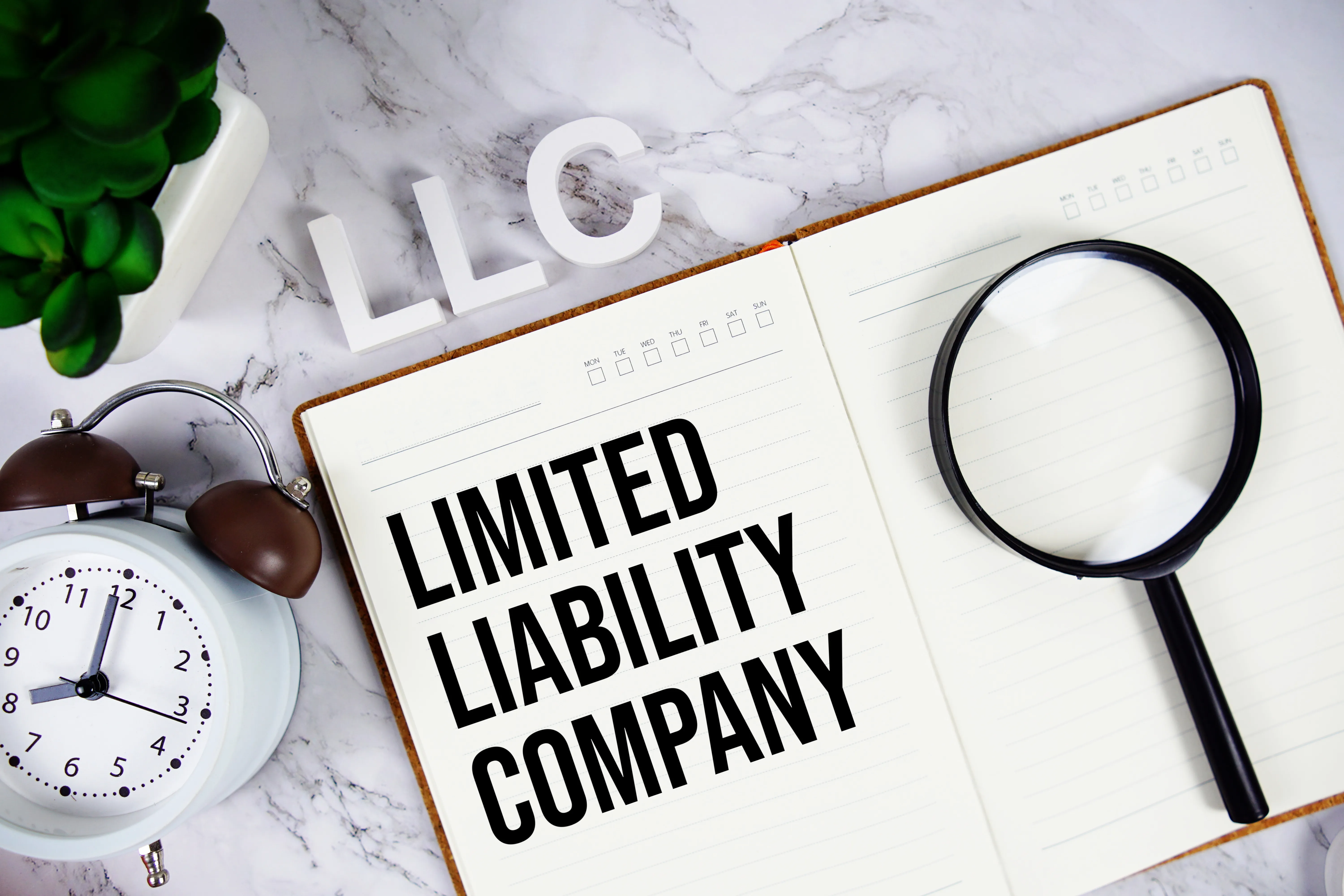Do you need a Business Incorporation Lawyer? Costs Explained
Are you considering transforming your small business project into a legitimate business?
One of the first major decisions you’ll face is whether to incorporate. And when you do, you might ask: Do I need a lawyer for that?”
Here’s the thing that most people don’t realize**; incorporation is more than just filling out a form.** It’s the legal foundation of your entire business.
So yes, you do need a lawyer to incorporate your business, even if you’re allowed to do it yourself.

This guide breaks it all down—what incorporation lawyers do, when you actually need one, and how much they cost. You will be surprised to know that lawyers’ fees are not as expensive as you think.
For business needs, you can compare and find business lawyers offering reasonable rates for specific tasks.
What Does It Mean to Incorporate a Business in Canada?
Incorporation is the process of legally creating a separate entity for a business under federal or provincial law. This means your company takes on its own legal “personality” in the eyes of the law, distinct and separate from you.
Why do many Canadian entrepreneurs choose to incorporate their business instead of just registering as a sole proprietorship or partnership?

It’s not just about looking more official. Rather, incorporation offers several real-world advantages that can protect you legally, help your business grow, and even save you money in the long run.
Here’s a breakdown of the top reasons why incorporation is worth considering:
Limited liability: Your personal assets are protected.
This is probably the #1 reason people incorporate. When you run a business as a sole proprietor, you and your business are legally the same entity. If your business gets sued, or racks up debt, your personal assets—like your house, car, or savings—could be at risk.
But once you incorporate, your business becomes its own legal person (yes, legally speaking). That means it can enter contracts, take on debt, and be sued without risking your personal assets. Your liability is “limited” to the amount you’ve invested in the company.
In short, incorporation helps create a financial and legal wall between you and your business.
Better Tax Planning Opportunities
Canada’s corporate tax rates are often much lower than personal income tax rates—especially on the first $500,000 of active business income. By incorporating, you can take advantage of:
- The small business tax deduction
- Income splitting with family members
- Tax deferral, by leaving income in the corporation instead of paying yourself all at once
These strategies can save you thousands of dollars, if you’re earning enough to benefit from them. It is advisable to speak with both a lawyer and an accountant about how to structure this.
Business credibility:
Clients and lenders often prefer dealing with incorporated entities. “Inc.” or “Ltd.” at the end of a business name sounds really professional. Whether you’re trying to land corporate clients, pitch investors, or apply for funding, an incorporated business is often perceived as more trustworthy and established.
In some industries such as tech, finance, or real estate, potential clients or partners may expect you to be incorporated.
Easier access to capital funding.
If you plan to raise money through investors or venture capital, incorporation is usually a must. Investors won’t put their money into a sole proprietorship because there is no legal structure to protect them, and no shares to receive.
With Incorporation, you can:
- Issue different classes of shares
- Bring in silent or active investors
- Structure ownership in a way that supports long-term growth
It also makes it easier to apply for small business loans, grants, and lines of credit since lenders prefer to deal with incorporated businesses with clean legal records and structured financials.
Continuity and Transferability
An incorporated business has a life of its own; it continues to exist even if the owners or directors leave, retire, or pass away. This makes it possible to:
- Sell the business in the future;
- Pass it on to your children or a partner
- Bring in new shareholders.
With a sole proprietorship, everything is tied to you personally. The business essentially ceases to exist when you do.
Clear Structure and Defined Roles
When you incorporate, you are required to outline the company’s structure- the shareholders, directors, decision-making processes, and profit distribution.
This kind of clarity helps avoid confusion or future disputes, especially if you are running a business with partners or family members.
With the help of a lawyer, you can set up a solid shareholder agreement that spells everything out in black and white. This will be very useful when things go well, and when conflicts arise.
Brand and Intellectual Property Protection
When you incorporate under a specific name, you gain certain rights to use that name in your jurisdiction. It is not the same as a registered trademark, but it’s a good starting point for brand protection.
Further, any intellectual property like logos, products, software, or creative work developed by employees or contractors can be owned by the corporation, which helps if you ever plan to sell your business or license your IP.
Is Incorporation the right step for you?

Incorporation is not for everyone. If you are just testing the waters or keeping things small and simple, it might make sense to wait.
But if you have business partners, expect profits of more than $50,000 a year, or raise funds, it is worthwhile to consider incorporation.
If you are not certain where to start, speak to a lawyer to get good legal advice.
Compare business lawyers near you by filling out the short online form on this page!
Can You Incorporate Without a Lawyer?
Yes, you can incorporate your business in Canada without hiring a lawyer.
The federal and most provincial governments offer online portals where you can file your own Articles of Incorporation.
You’ll also find third-party incorporation services that walk you through the process with ready-made templates. So technically, yes, you can go the DIY route.
What will you need to do to incorporate without a Lawyer?
- Choose a Business Name
- Decide if you’re using a numbered company (ex: 12345678 Canada Inc.) or a custom name.
- Make sure your chosen name complies with government naming rules (ex: must include “Inc.” or “Ltd.”).
- Conduct a NUANS Name Search
- This is a mandatory report that checks if your business name is already in use.
- Costs around $13 to $75 depending on where and how you get it.
- File Articles of Incorporation
- These are the legal documents that officially create your corporation.
- You’ll need to choose your share structure, define your corporation’s purpose, and appoint directors.
- Create and Maintain a Corporate Minute Book
- This includes bylaws, resolutions, share certificates, and corporate records.
- You must observe proper maintenance of this book for compliance.
- Appoint Directors and Officers
- You will need to designate the person officially running the company.
- Register for Taxes and Licenses
- Depending on your province and business activities, you may need to register for GST/HST, payroll, or municipal licenses.
- Comply Year After Year
- Corporations are required to file annual returns and maintain updated corporate records—even if your business is small or inactive.
The Risks of Incorporating Without Legal Help
While incorporating without a lawyer can save you money upfront, there are a few common pitfalls that could cost you more later on.

- Incorrect Share Structure: Messing this up can make it harder to bring on investors or split ownership down the line.
- Missing Bylaws or Agreements: If you don’t create these, you’re flying blind, and disputes with partners become a legal nightmare.
- Incomplete Records: Forgetting to maintain your minute book can lead to non-compliance, fines, or even the dissolution of your company.
- Tax Inefficiencies: Choosing the wrong structure may cause you to miss out on tax advantages or result in unexpected liabilities.
- Name Conflicts: Passing the NUANS search does not guarantee that you won’t infringe on someone’s trademark.
While there are online platforms in Canada that offer incorporation packages for a small fee, their services are simpler in form. They often include:
- NUANS report
- Filing Articles of Incorporation
- Digital minute book
- Basic bylaws or templates
These services are great if you are a solo founder with a straightforward business. Just know that you are not receiving legal advice, only automated paperwork that are not tailored to your circumstances.
If you experience legal issues in the future, such as disputes with other partners, you will need to hire a lawyer then, to fix a problem that could have been avoided from the beginning.
So, if you want to know if you can do the incorporation by yourself, the answer is yes. Ask yourself these questions:
- Do I fully understand corporate law, tax implications, and share structure?
- Am I comfortable maintaining legal records and compliance all-year-round?
- Is saving a few hundred dollars today worth the potential costs of fixing mistakes tomorrow?
If your answer is “I’m not sure,” then getting an initial consultation with a business incorporation lawyer, at the very least, can give you peace of mind, and possibly save you thousands in the future. .
Find a business incorporation lawyer today to get an initial consultation for your business incorporation. Just fill out the free online form on this page.
FAQs about Business Incorporation in Canada
Still feeling a bit unsure about the process of incorporating? You’re not alone.
Business incorporation comes with a lot of moving parts—forms, legal terms, government rules, and expenses, and it’s totally normal to have questions.
Whether you’re just getting started or trying to figure out if you need a lawyer, this FAQ section covers some of the most common concerns Canadian business owners have when it comes to incorporation.
1. What’s the difference between federal and provincial incorporation?
When you incorporate federally (through Corporations Canada), your business can operate under the same name across all provinces and territories, but you still need to register separately in each province where you plan to do business.
Provincial incorporation (for instance, through Ontario’s business registry) only protects your name within that province. If you plan to stay local, it’s usually simpler and cheaper.
2. How much does it cost to incorporate a business in Canada?
Here’s an estimate of filing fees (not including legal or consulting fees):
- Federal incorporation: ~$200 online
- Ontario incorporation: ~$300
- Alberta/B.C./other provinces: Usually $275–$400
You should add to that:
- NUANS name search: $13–$75
- Corporate minute book (optional but highly recommended): ~$100–$200
- Lawyer fees (if used): $800–$2,500+
3. Do I need a lawyer to incorporate my business in Canada?
It is not mandatory to hire a lawyer to incorporate a business. You can incorporate on your own or use an online service. But if your business involves co-founders, investors, share allocations, or long-term growth plans, hiring a lawyer is highly recommended to avoid costly mistakes.
4. Do I need a NUANS report?
NUANS stands for “Newly Upgraded Automated Name Search.” It is a database that checks whether your desired business name is already in use. You need a NUANS report if you are incorporating with a custom name federally or in many provinces such as Alberta or Ontario.
5. What is a corporate minute book and why is it important?
A corporate minute book is a record of all your company’s important legal documents: articles of incorporation, bylaws, resolutions, share certificates, and more.
Even if you are a sole proprietor, maintaining a minute book is required for compliance and tax audits. If you ever sell your business or bring in investors, they will request to see it.
6. Can I incorporate my business if I’m not a Canadian citizen?
In most provinces, you can incorporate a business even if you are not a Canadian citizen. However, some provinces like Ontario and Alberta require that at least 25% of the directors be Canadian residents. If you don’t meet this requirement, consider federal incorporation or a province with fewer restrictions such as British Columbia.
7. Can I change from a sole proprietorship to a corporation later?
Yes. Many small business owners start as sole proprietors and incorporate later as their business grows. Just be aware that:
- You will need a new CRA business number
- You will have to close your old sole proprietorship
- You may need to transfer assets or re-sign contracts
A lawyer or accountant can help with this transition.
8. What is a shareholder agreement, and do I need one?
A shareholder agreement is a legal document that outlines how the company is run, how ownership is structured, and what happens if someone leaves or disputes arise.
If you have more than one owner, you absolutely need one. It protects everyone’s interests and can prevent major legal headaches.
9. What are the ongoing obligations after I incorporate?
Once incorporated, you need to:
- File an annual return with the federal or provincial registry
- Maintain your corporate minute book
- Hold annual shareholder and director meetings
- Keep up with CRA filings (corporate tax, GST/HST, payroll, etc.)
Many lawyers offer “corporate maintenance” services to help with these tasks.
10. Can I operate under a different name than my corporate name?
Yes, it is called a trade name or doing business as (DBA) name. You can register it separately from your corporate name. For example, “12345678 Canada Inc.” might operate publicly as “Maple Products Ltd.”
Just make sure to register the trade name and check for trademarks to avoid conflicts.
Is Hiring a Business Incorporation Lawyer Worth It?
Incorporating your business is an exciting milestone, but it’s also a legal process that deserves careful attention.
While it is possible to do it yourself or use an online platform, there’s no substitute for personalized legal advice when you wish to grow your business.

If you have co-founders, want to raise funding, need a custom share structure, or simply want peace of mind that your legal foundation is rock solid, working with a business incorporation lawyer is a smart investment.
You don’t have to spend hours searching online or spend too much. We make it easy to connect with experienced and reliable business lawyers in your area so you can compare services, check pricing, and find someone who fits your needs and budget.
Ready to get started? Request your free incorporation lawyer quotes today - no obligation, no stress.
